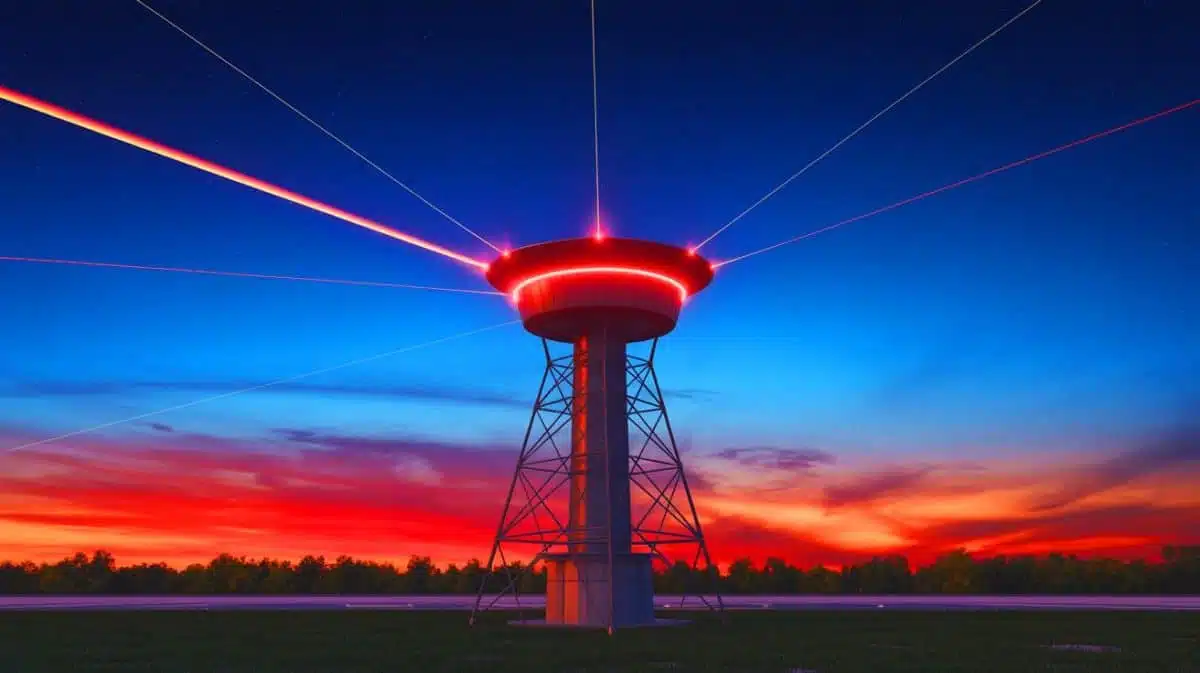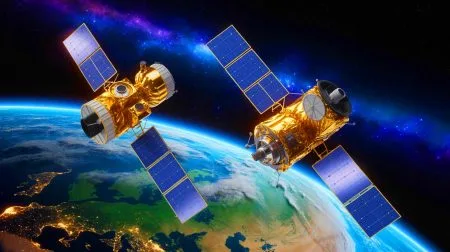| IN A NUTSHELL |
|
Humanity’s quest to discover if we are alone in the universe is a tale as old as time. While our telescopes have yet to reveal definitive evidence of extraterrestrial life, the possibility remains tantalizing. New theories suggest that extraterrestrials might not arrive due to our deliberate signals but because of inadvertent ones. Could it be that our everyday infrastructure, particularly our airports, holds the key to our discovery by alien civilizations?
Airport Radars: Our Accidental Cosmic Beacons
At the National Astronomy Meeting hosted by the Royal Astronomical Society, an intriguing theory was presented by Ramiro Saide, a doctoral student specializing in astrophysics at the University of Manchester. Saide, who is involved with the Search for Extraterrestrial Intelligence (SETI), proposed that Earth’s radar systems, especially those used in airports, might act as “technosignatures” detectable by extraterrestrial observers.
Airport radars function by emitting radio waves to scan the skies for aircraft. A significant amount of these waves escape into space, potentially serving as signals to alien civilizations. According to Saide’s research, these radio waves could be detected up to 200 light-years away. The combined power of these emissions is estimated to be equivalent to 2×1015 watts, making it a beacon that could guide an alien spacecraft directly to Earth if it were to pass within range.
Saide emphasizes that civilizations can transmit signals unintentionally. Here on Earth, we produce radio emissions that might be detectable by an advanced alien technology. The prospect of being found without even trying to send a message is both fascinating and humbling.
Is It Time to Stop Trying So Hard?
The traditional approach to finding extraterrestrial life has involved deliberately sending messages into space, a method primarily championed by SETI. However, these efforts have yet to yield results. Saide’s research indicates that even without intention, we are already reaching out to the cosmos. Although these unintentional signals only extend up to 200 light-years, they encompass a significant expanse of space.
Within this range, there are approximately 120,000 stars, including Proxima Centauri, our closest stellar neighbor, which lies only 4.25 light-years away. Proxima Centauri hosts an Earth-like exoplanet, Proxima b, heightening the intrigue. Could an airport control tower, perhaps at Charles de Gaulle Airport, inadvertently send a signal leading extraterrestrials to us?
While this doesn’t confirm the existence of alien life, it provides a novel perspective on how we might find it. It’s a reminder that sometimes, less effort can lead to more significant discoveries.
Rethinking Our Cosmic Communication Strategies
The implications of accidental signals from airport radars challenge our current methods of searching for extraterrestrial life. The realization that our everyday technology could serve as a beacon to alien civilizations requires a reassessment of our strategies. The vastness of the universe means that even our strongest signals face immense challenges in reaching their intended targets. Yet, the notion that aliens might find us through these unintentional emissions is a compelling twist.
Understanding the potential for existing technologies to communicate with extraterrestrials opens new doors for research. It prompts the question of what other everyday devices might unknowingly contribute to this cosmic dialogue. As we continue to innovate, the interplay between our technological advancements and the search for alien life will only grow more complex.
Implications for Future Space Research
As we consider the possibility that airport radars might guide extraterrestrials to us, we must also ponder the broader implications for future space research. The idea that our technology inadvertently broadcasts our presence adds a new layer to how we perceive our place in the universe. It suggests that our technological footprint extends far beyond Earth.
This perspective encourages us to think critically about the technologies we develop and their potential impact on our search for extraterrestrial life. It raises questions about the balance between deliberate and accidental signals and how we might harness this knowledge to improve our chances of discovery. The potential for our everyday infrastructure to play a role in this cosmic quest is both exciting and daunting.
The notion that something as mundane as airport radar systems might one day lead aliens to Earth is a fascinating possibility. As we continue to explore the universe, we must remain open to unconventional ideas that challenge our understanding. Could it be that the key to finding extraterrestrial life lies not in what we intentionally send out, but in the inadvertent signals we produce? The answer may redefine our approach to cosmic communication and our place in the cosmos.
Did you like it? 4.7/5 (25)









Are we really showing aliens the way with our airport radars? 🚀🛸
Could this mean that aliens might already know about us and just haven’t visited yet?
This is fascinating! Who knew our daily tech could be so cosmic?
I’m skeptical. Surely if this were true, we’d have seen some signs of aliens by now? 🤔
Gr8 article! It’s mind-blowing to think about the reach of our everyday tech.
Why haven’t we been warned about this before? Seems like something we should’ve known! 😅
The idea of airport radars acting as beacons is both exciting and terrifying.
How can we verify that these signals are actually reaching alien civilizations?
I found this article very informative, thank you for sharing such unique insights!
Are there any plans to modify our radar systems to avoid this?
Wow, 120,000 stars within 200 light-years? That’s a lot of potential alien neighbors! 🌌